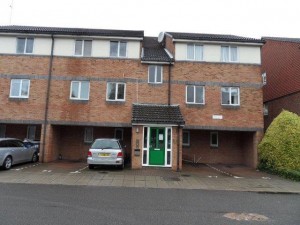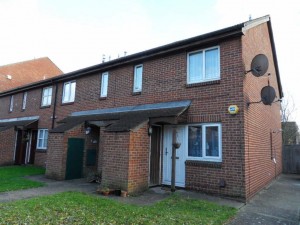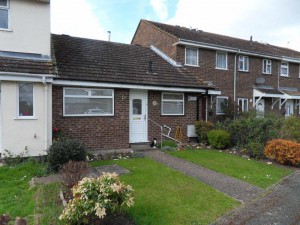- Property Search
- Guide for Landlords
- Guide for Tenants
- Get a FREE valuation
- Landlord Fees
- Tenant Fees
- FAQ’s Landlords
- FAQ’s Tenants
Guide for Tenants
What type of property should I look for?
First of all, think carefully about the type of property you’d like to rent and which best suits your lifestyle, the location (close to shops, schools, transport links etc) and budget.
Register your interest
Once you have decided on the budget, location and type of property, we will help you find the right property for your needs. You can register with us either by calling us on 020 8575 7722, calling in person to our office on Greenford Broadway or emailing us.
Selecting the right property
Once you have registered you details we will have a clear understanding of your requirements and will endeavour to match you to a suitable property, if we do not have the right property we will keep you up to date with new properties that become available via Phone email and text.
Viewings
Our office is open 9am-6pm Monday to Friday and 9am-5pm Saturdays which will enable us to accompany you on the viewing and be able to answer any questions you may have about the property
Making an offer
Once you have identified a suitable property you will be required to complete an application for tenancy where you may state any special conditions of the offer and provide details for your references. We will then communicate this offer to the landlord.
Offer agreed
Once the offer and terms have been agreed you will complete a reference form and we will conduct credit checks and references from the referees that you have provided (typically employment and landlords references).
Preparation for move in
Assuming the references are acceptable we will collect the moving in payment and we will arrange for you attend the office to sign the tenancy agreement.
Completion
Upon completion, we will move you into the property, explain the workings of your new home, present you with the inventory on the property, read the gas and electric meters and hand over a set of keys. Congratulations, you can now move into your new home!
Post completion
We will contact the utility companies with the move in meter reading, register your deposit with the TDS and supply you with the correct paperwork including contact details for any management issues.
Inventories
The inventory is a report on the condition of the property and its contents, which gives you the tenant a clear picture of the condition of the property you are renting. This inventory will be used at the end of the tenancy to determine if there are to be any deductions required from your deposit. Because the deposit will be protected in a tenancy deposit protection scheme (which the landlord pays for) the inventory is an vital part of the tenancy to ensure your deposit can be returned without un-necessary or un-fair deduction. The Landlord will pay for the check out to be done at the end of the tenancy if required.
Studios £100.00 inc vat
One bedroom £110.00 inc vat
Two bedrooms £120.00 inc vat
Three bedrooms £130.00 inc vat
Four bedrooms £140.00 inc vat
Five bedrooms £150.00 inc vat
One months rent in advance
The first months rent is always paid in advance.
Proof of address / identification
We will require proof of address in the form of a gas, water, electric, council tax, telephone, a driving license, recent documentation confirming the applicant will be/is receiving housing benefit or a letter from employer on headed paper signed and dated, or bank statement. Copy of photo identification is also required, this should be in the form of Passport or the new style driving license.
ALL FUNDS MUST BE CLEARED BEFORE THE OCCUPANCY OF A PROPERTY
Signing contracts
The letting contract or agreement must be signed by all tenants (which is a legally binding agreement) and, until such time, no contractual agreement, offer or obligation is deemed to exist.
Guarantors
A Guarantor will be required for an individual tenant who is unable to provide satisfactory references or has been in continuous employment less than six months. The Guarantor is usually a member of the individual’s family who is of sufficient means to provide suitable references. This person will be required to sign a legally binding document, which would make him/her liable for the rent and tenancy obligations for the term of occupancy if the tenant defaults on his/her payments/obligations, guarantors will be referenced in the same way as the tenants and are charged at the same rate as tenants.
Moving in
It is the tenant’s responsibility to arrange services (normally telephone, gas, electricity and water). Evans & Company will advise the gas, electric, water companies and the council tax office of your move in with the relevant meter readings. In exceptional circumstances (e.g. tenant arriving from overseas) where this is not possible, we are able to arrange for services to be provided on a temporary basis, and a charge would be made. You should also contact British Telecom (or any local telecoms operator if applicable) for connection of your telephone service by calling BT sales (by dialling 150). Evans & Company Lettings or the landlord cannot accept responsibility for any costs incurred with connection of supplies. You should carefully check the condition of the property and its contents when you move in. If you find anything that is not in order, then we ask you to report it to us within three days of moving-in so that we can report it to the landlord so it can be put right or marked on the inventory. The property is let as seen at the time of viewing; and requests for extra furniture, appliances or redecoration will not normally be considered after the tenancy is entered into.
Method of payment
On the date of occupation the balance (one months rent and remainder deposit as stated on the deposit receipt) is to be paid by cash. We will accept Bank Transfers, but these will need five working days to clear before you can move into the property. (For bank transfers please contact the office for our bank details. When the Landlord has instructed Evans & Company Lettings as agent to collect the rent each month, Evans & Company Lettings will appoint a lead tenant and a standing order facility will be set up for the total amount of rental on that property. It is important that you furnish us with your bank details on or before the occupation date. Evans & Company Lettings regret that they are unable to accept personal cheques in payment for rent. Delayed rent payment causes us considerable extra administration and further delays in our payments to the landlord. A surcharge of £25.00 will be made when rents are not paid on the due date.
Deposit
A deposit is held either by Evans & Company Lettings or the landlord against damage to the property or its contents, loss of rent or other unexpected costs or breach of the agreement. This is usually equivalent to one, one and a half’s or two month’s rent and is returnable at the expiration of the tenancy, subject to a final inspection and full inventory check. If any necessary cleaning, repairs or replacements are required following the tenancy, then the deposit would normally be refunded, less remedial costs. From 6 April 2007, all deposits, up to the level of £100.000, taken by landlords or agents for Assured Shorthold Tenancies in England and Wales (this covers the vast majority of tenancies), must be protected by a tenancy deposit protection scheme. Within 30 days of taking the deposit, the landlord or agent must provide the tenant with details of how the deposit is being protected. A holding fee of £300.00 is normally payable upon your request to rent a property. If your references or funds are deemed unsuitable, or you simply change your mind, then the holding fee will be retained to cover our administration costs.
Tax
If the landlord is not living in the UK, regardless of their nationality, they are still liable to pay tax on their UK income. If they have not taken certain steps to gain approval from the Inland Revenue, allowing the agent or tenant to pay rental income gross, then the agent, or the tenant depending upon the circumstances, may be liable for the tax on the rental income received. For more information contact your local Inland Revenue or visit www.inlandrevenue.gov.uk
Frost damage
Frost damage is a risk to all houses left empty during the Winter period (December to April months) due to possible pipe bursts and flooding. If you are away from the property for any period longer than one day, then we request that you carry out the following procedures:
- Turn off the mains water supply at the main stopcock and open loft access hatch (if provided).
- OR – Leave heating on (if necessary, turn down to a low setting). Failure to carry out this procedure could make you liable for any damage caused.
Insurance
As tenants, you will be responsible for the safe keeping of the property and its contents and unless otherwise advised, you will be responsible for insuring the contents of the property and the safe keeping of your own valuables and effects. The landlord shall not be responsible for consequential damage (e.g. damage by ingress of water, loss of freezer contents etc.) and you should carry appropriate insurance if you wish to be covered against these risks.
Repairs
Tenants are requested to bring any disrepair, damage or defect in the premises to the immediate attention of the agent or landlord. In the event of emergency repairs, please call the landlord or if Evans & Company are managing the property our office.
Maintenance and appliances
Any maintenance problems should be reported immediately to the landlord or Evans & Company Lettings (if managed). The landlord undertakes to maintain the fabric and services of the building (water supply, drain etc). As tenant(s) you are responsible for all appliances left in the property and in cases of genuine breakdown (physical breakages or damage due to neglect, misuse or tenant to be found at fault are excluded) the landlord will be liable for repair. You will be expected to allow access for a repair engineer to call at a time convenient to yourself. You may find that smoke detectors and similar safety devices have been fitted in your property. Where this is the case, please ensure that you check all such devices on moving into the property and familiarise yourself with their operation (most smoke detectors have a test button to check batteries and that the unit is operating correctly) and report any problems to your landlord or agent as applicable. Thereafter, you should check the devices at regular intervals and be responsible for replacement of any batteries that they may require.
Damp and condensation
Damp can be a problem in houses where there are many occupants and the property is not adequately heated and ventilated. You should ensure that any extractor fans are left connected and are properly used. It is also important to open windows as necessary to encourage an adequate flow of fresh air through the property after bathing or showering in order to allow damp air a chance to escape. The hanging of washing and wet clothes will also create large amounts of damp air and again, it will be important to provide adequate heat and ventilation in such circumstances. The presence of mould or dark spots or stains (especially in bathrooms and other wet areas) is a common sign of inadequate heat and ventilation, it is important to prevent further spread at an early stage before severe and irreversible staining takes place. Mould and similar stains should be removed by wiping the affected areas with a fungicide or mild bleach in accordance with manufacturers instructions (but do test on a small area first). If the problem persists, then you should inform us.
Gas appliances
Gas Safety regulations now apply to both landlords and tenants in rented property. In order to comply with the regulations, it is necessary:
- that brown or sooty build-up on any gas appliance, or gas escape should be reported immediately to your landlord or letting agent AND the local Gas Board.
- that ventilators installed in the premises for the correct operation of the gas appliance should not be blocked.
- that safety checks be carried out every 12 months on any gas appliance in the property. The tenant is required to allow entry with reasonable notice for this purpose. A copy of the record will be made available to tenants.
Electrical appliances
For safety reasons, tenants are requested to visually inspect all electrical appliances on a regular basis. In use, cables and flexes can become frayed and casings broken. You should contact your landlord or Evans & Company Lettings (if managed) as soon as possible should any defect be discovered or repair become necessary. Where electrical appliances are used outdoors (e.g. electrical lawnmowers etc.) they should only be used when connected to an RCD (Residual Current Device) protected mains supply. RCD units are available from most hardware stores and should be checked before use. The tenant is responsible for keeping all electric lights in good working order and in particular to replace all fuses, bulbs, or fluorescent tubes, as and when necessary. Any replaceable or disposable filters, vacuum bags, or other consumable items in appliances and fittings should be replaced at the end of the tenancy.
Inspections
If Evans & Company Lettings is managing the property, then quarterly inspections will be carried out. You will of course be informed (normally 1 week in advance) prior to these inspections, if landlords are managing their own property they may also wish to inspect the property.
Termination of your tenancy agreement
The tenancy agreement is a legal and binding contract for the set term that you have previously agreed and signed for. However, if due to unforeseen circumstances, you need to leave the property before the expiration of the Tenancy subject to the Landlord’s written agreement, Evans & Company Lettings would be willing under your written instructions to re-advertise the property for re-let. There would, of course be a charge for this service, being 10% plus VAT of the rental income for the remainder of the term of your Tenancy. Should it not be possible to re-let the property immediately, you would be responsible for all rental, gas, electricity, water rates, council tax and telephone payments until the new tenants have taken up occupation of the property or until the original termination date of the agreement, whichever is sooner. If you fail to vacate the property on the date requested or agreed, or fail to meet the obligations of the letting agreement, then the landlord or Evans & Company Lettings reserves the right to make a charge to cover legal fees, losses and other costs to the landlord, agent or other parties.
Alarms
Where the property is alarmed using a security code, the tenant must not change the alarm code without obtaining prior written consent from the Landlord or Evans & Company Lettings. If Evans & Company Lettings are managing the property they need to hold alarm and similar security information for emergency, maintenance and inspection purposes; if any alteration is made to the code, you are requested to inform Evans & Company Lettings as soon as possible.
Television aerials
The tenant is responsible for the repair and maintenance of any television aerials, satellite dishes or similar installations for use with any television at the property. You are also reminded that a television licence is required in order to use a television at the property and tenants would normally be responsible for this cost.
Inventories and check in
The inventory is a report on the condition of the property and its contents, which gives you the tenant a clear picture of the condition of the property you are renting. This inventory will be used at the end of the tenancy to determine if there are to be any deductions required from your deposit. Because the deposit will be protected in a tenancy deposit protection scheme the inventory is an vital part of the tenancy to ensure your deposit can be returned without un-necessary or un-fair deduction.
International applicants
If you have not been residing in the UK for 6 months then you will be classed as an international applicant and we will have to reference you in that way, the cost for international references are higher as there is extra checks that have to be done. You will also be asked for the following:
A copy of your passport, proof of your UK bank account, employment details and a copy of your employment contract or job offer letter.











